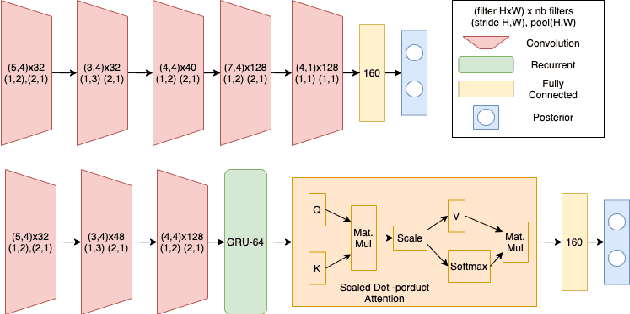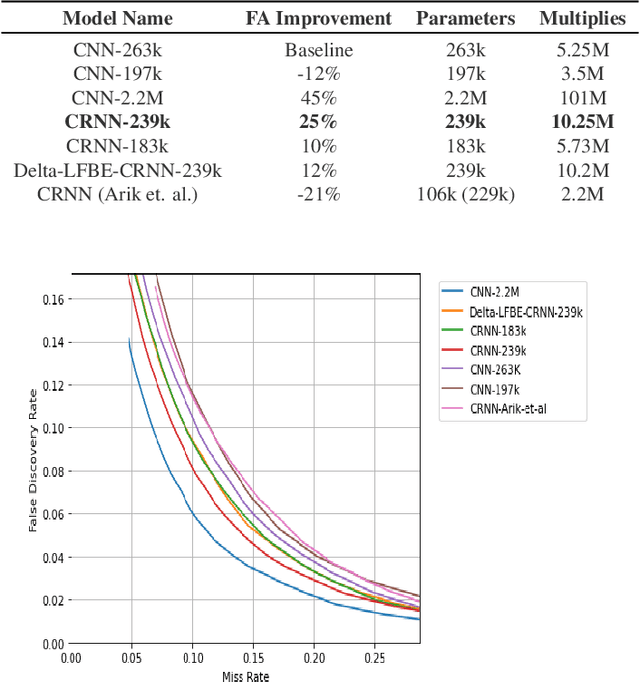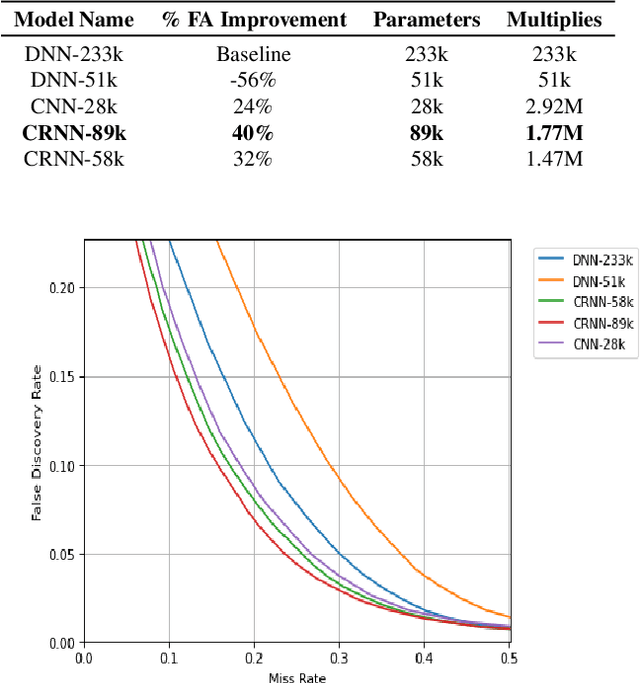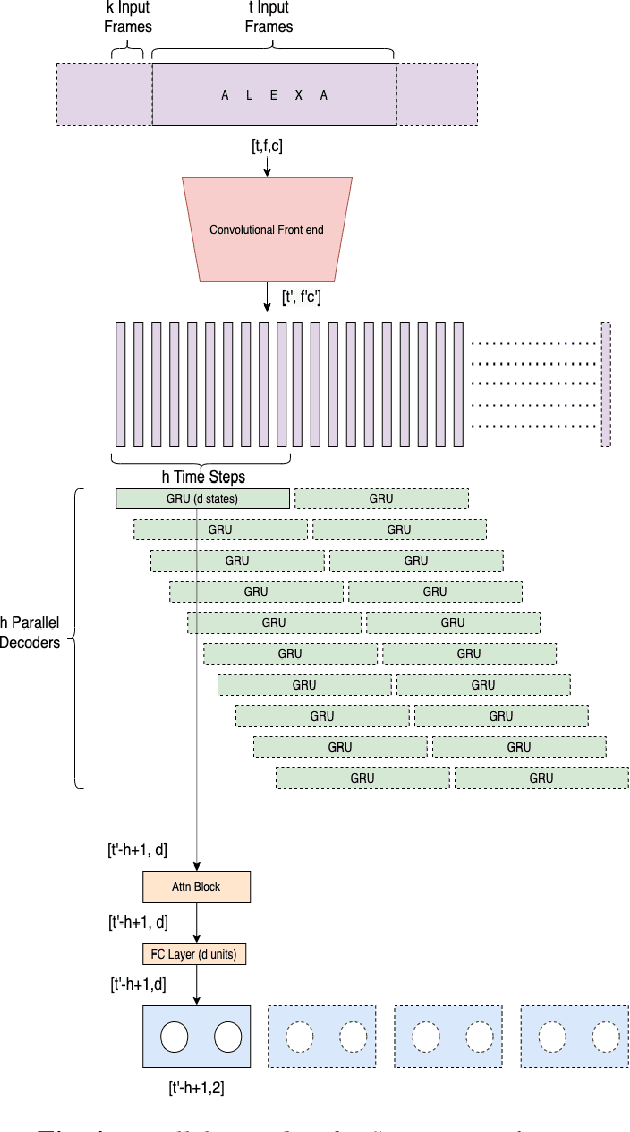Tiny-CRNN: Streaming Wakeword Detection In A Low Footprint Setting
Paper and Code
Sep 29, 2021



In this work, we propose Tiny-CRNN (Tiny Convolutional Recurrent Neural Network) models applied to the problem of wakeword detection, and augment them with scaled dot product attention. We find that, compared to Convolutional Neural Network models, False Accepts in a 250k parameter budget can be reduced by 25% with a 10% reduction in parameter size by using models based on the Tiny-CRNN architecture, and we can get up to 32% reduction in False Accepts at a 50k parameter budget with 75% reduction in parameter size compared to word-level Dense Neural Network models. We discuss solutions to the challenging problem of performing inference on streaming audio with this architecture, as well as differences in start-end index errors and latency in comparison to CNN, DNN, and DNN-HMM models.
 Add to Chrome
Add to Chrome Add to Firefox
Add to Firefox Add to Edge
Add to Edge